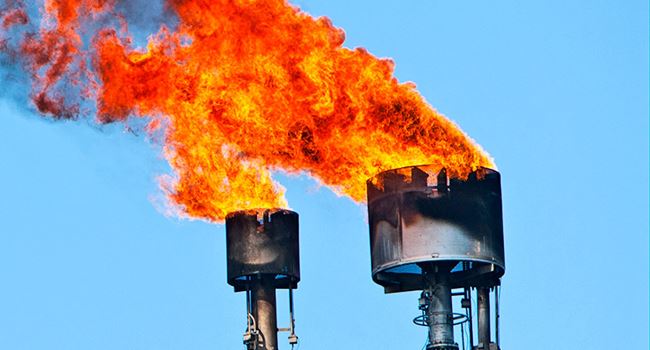Business
NEITI bemoans unpaid $1.4bn gas royalty, flare penalty

The Nigerian Extractives Industries Transparency Initiative (NEITI) has lamented the whopping $1.3886b revenue loss accruable to the federal government in unpaid gas royalty and gas flare penalties.
Giving a breakdown, NEITI disclosed that unpaid gas royalty stands at $559.8 million, while the debt stock to gas flare penalty stands at $828.8 million.
The revenue is due to the Nigerian Upstream Petroleum Regulatory Commission (NUPRC) and is payable by the NNPCL and oil companies in Nigeria.
Dr. Orji Ogbonnaya Orji, the Executive Secretary of NEITI made this known on Monday, November 13 during his opening remarks at the 2nd German-Nigerian Symposium on Green Hydrogen in Abuja.
He highlighted that despite the country’s standing as a major global gas producer, there are dangers from constant gas flaring activities in the country, which could instead be harnessed as the country looks to implement its Decade of Gas agenda.
“And sadly, Nigeria is still battling to put in place and embrace efficient gas commercialisation and utilisation policy. For instance, NEITI’s recent report disclosed a total unremitted revenue of over $8.2bn. These revenues arose from liabilities of government agencies and oil/gas companies,” he said.
“A breakdown of the unremitted payments in our report showed outstanding gas royalty of $559.8m and another unremitted sum of $828.8m from unpaid gas flare penalty which indicated that more gas was flared during the period than utilised, posing serious dangers to the global zero emissions agenda.”
READ ALSO:NEITI recommends revocation of oil block licenses of Agip, Sahara, Shell, others
He said NEITI is working closely with the NUPRC on its ongoing gas commercialisation policy to ensure transparent and effective implementation to reverse the trend of gas flare.
Speaking at the event, the Country Director, GIZ Nigeria & ECOWAS, Dr. Markus Wagner said: “It is crucial to recognize that green hydrogen has the potential to revolutionize our energy landscape. It offers a path to reducing carbon emissions, diversifying energy sources, and boosting economic growth.”
He also emphasized the importance of data and information in facilitating a successful energy transition in Nigeria. Comprehensive planning, monitoring, and evaluation of the implementation plans are crucial elements for navigating the transition effectively.
He suggested that Nigeria should position itself as a technology leader to fully capitalize on the opportunities presented by the energy transition journey.
In addition, Nigeria’s Minister of Gas, Ekperikpe Ekpo, represented by the Director of Gas, Mrs. Komolafe Oluremi, acknowledged Nigeria’s commitment to achieving Net Zero Emission by 2060.
Ekpo highlighted that hydrogen offers a viable pathway for decarbonizing the country’s energy sector, and it has become a top priority for the Ministry of Petroleum Resources.
He emphasized the need for substantial investments to scale up the hydrogen economy, and the government can play a role by creating a conducive climate for investors.
Ambassador Annett Günther, representing the Federal Republic of Germany in Nigeria, affirmed the commitment of both Germany and Nigeria to drive the production and utilization of hydrogen.
Join the conversation
Support Ripples Nigeria, hold up solutions journalism
Balanced, fearless journalism driven by data comes at huge financial costs.
As a media platform, we hold leadership accountable and will not trade the right to press freedom and free speech for a piece of cake.
If you like what we do, and are ready to uphold solutions journalism, kindly donate to the Ripples Nigeria cause.
Your support would help to ensure that citizens and institutions continue to have free access to credible and reliable information for societal development.
























